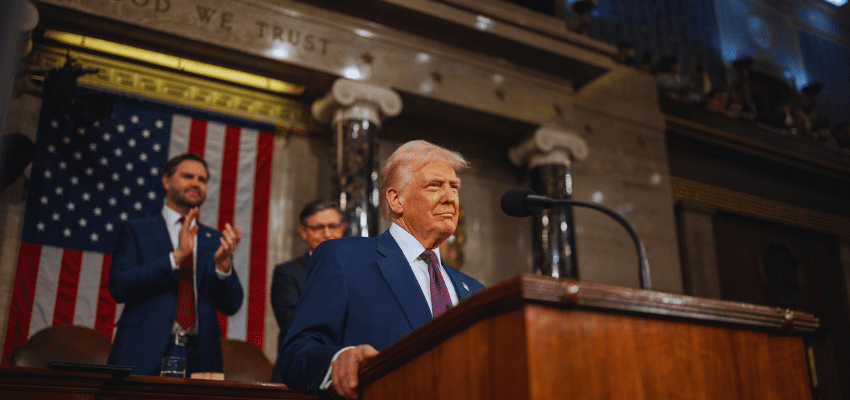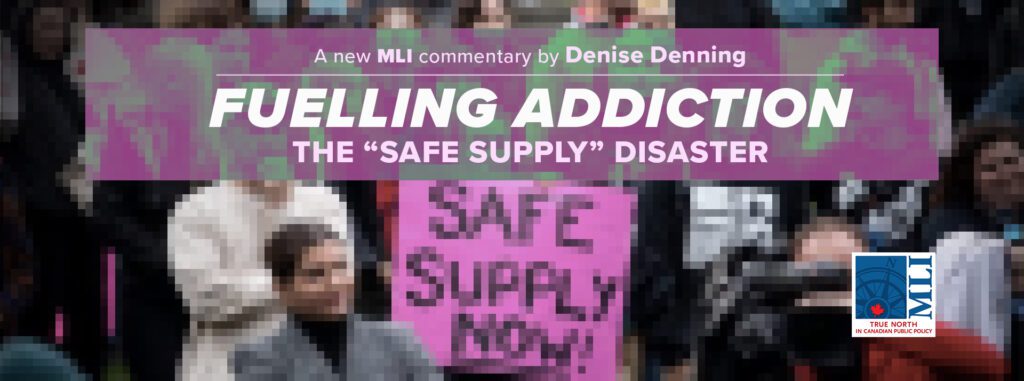This article originally appeared in the Globe and Mail.
By Richard Shimooka, Balkan Devlen and Alexander Lanoszka, March 10, 2025
Over the past month, Canadians have been transfixed by the Jerry Springer-like drama between Donald Trump’s administration and Ottawa. We are now embroiled in a trade war, and Mr. Trump’s talk of making this country the 51st state has drawn particular attention, including from Prime Minister Justin Trudeau.
But beneath the rhetorical bombast, a much less aggressive picture of U.S. foreign policy is emerging. Budgets are a key indicator of a president’s priorities and, to date, what the White House’s budgetary aspirations indicate is not an expansionist and imperialist America, but an insular, enfeebled and politically divided country that harks back to the 1920s and 1930s.
The Trump administration reportedly plans to introduce severe budget cuts to the Department of Defence, which could shed as much as 8 per cent of its budget in the next year, with more cuts planned in the future. The intent is to identify savings within the Pentagon to refocus military capabilities toward a robust hemispheric defence of the United States. To achieve this goal, the budget would significantly pare back on overseas military commitments, which arguably help deter competitors and maintain stability.
This radical reorientation would come at great geopolitical risk, not least from Russian revanchism, Chinese maritime assertiveness and instability in the Middle East. Put simply, these budget priorities coupled with the neo-mercantilist and zero-sum rhetoric of the Trump administration on trade suggest a retrenchment to the Western Hemisphere, and a tacit recognition of Russian and Chinese claims to their alleged spheres of influence.
This approach faces at least one major domestic challenge: it will almost certainly contribute to legislative dysfunction that will only further diminish American influence. The Republican Party has one of the slimmest working House majorities in its history and a very narrow advantage in the Senate. Republican defence hawks wanted Mr. Trump to increase defence spending; Senate Armed Services Committee chair Roger Wicker even called for a US$200-billion hike in spending to manage foreign threats. Congress may have been compliant with Mr. Trump to this point, but a major fight looms as cuts – and their consequences for jobs and investments in several congressional districts – might be too much for some Republican lawmakers.
An insular, if not isolationist, administration is nearly as grave a geopolitical risk to the world’s democracies as an imperialist one. After all, the U.S.’s forward deployments and active diplomatic engagement abroad have helped secure Canada, Europe and the West Pacific since the 1950s. The Trump administration is now choosing to put that security in jeopardy. If this pattern holds, then European NATO allies, Canada and other like-minded states must manage their own security affairs, giving them a kind of agency that arguably has not existed since the U.S. entered the Second World War.
Mr. Trump’s first term in office offered a preview of today’s short-sighted and cynical approach. He personally desired a U.S. exit from Afghanistan, and so negotiated a highly flawed agreement with the Taliban to facilitate the withdrawal of American forces without Kabul’s participation, effectively dooming that country. The same dynamics are now at play with Ukraine; with his détente with Moscow and his sudden decision to end military aid, Mr. Trump wants to wash his hands of the war rather than actually end it, which will lead to a “peace” reminiscent of the 1938 Munich agreement that paved the way for the total surrender of Czechoslovakia to Nazi Germany.
Nevertheless, Canada and like-minded states can and should step up by providing robust economic and military support to Ukraine. If they can provide a credible and durable alternative, it wouldn’t just allow Ukraine to persevere – it would also help preserve a varied form of the international order that has provided security and prosperity for the past 80 years. This would require a co-ordinated international effort to make use of new and untested multilateral institutions, which are also at risk of succumbing to far-left or far-right policies themselves.
America’s isolationist turn doesn’t mean that Canada should stop supporting our allies globally or doing its part to deter rising threats, even if they haven’t yet reached our doorstep; if anything, Mr. Trump’s America leaves a gap in the fight for global freedom that Canada should be seeking to fill. The path forward is difficult, but if Canadians are truly determined to control their destiny, stepping up on the world stage will be necessary.
Richard Shimooka is a senior fellow at the Macdonald-Laurier Institute.
Balkan Devlen is director of the Transatlantic Program at MLI and a senior fellow at the Center for North American Prosperity and Security.
Alexander Lanoszka is a senior fellow at MLI and an associate professor of international relations in the department of political science at the University of Waterloo.







